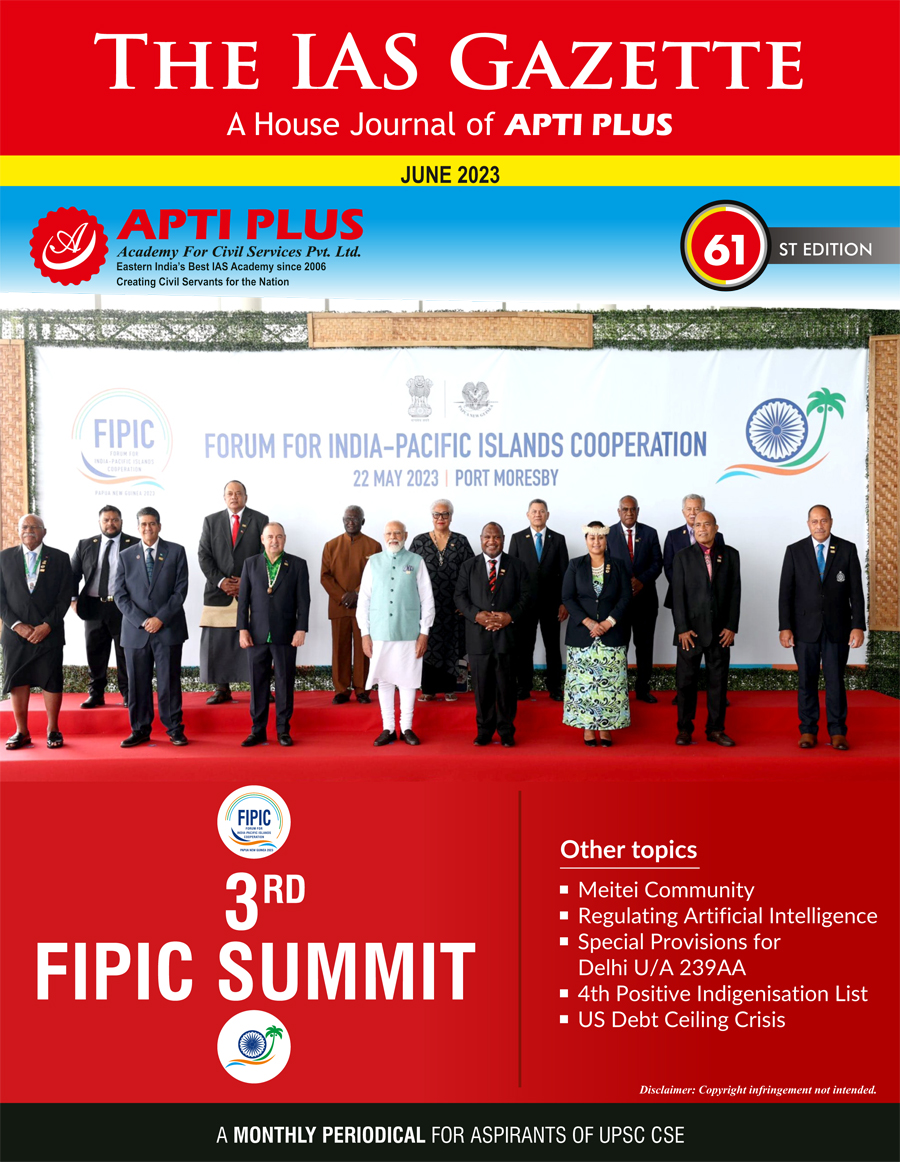
Disclaimer: Copyright infringement not intended.
Context
- 27th Conference of Parties (COP27) to the United Nations Framework Convention on Climate Change, was held in Sharm El Sheikh, Egypt. It did not provide any concrete and clear outcomes on climate finance.
- Hence the issue of climate finance is supposed to be tackled in an intersessional session, Bonn Climate Change Conference, which is scheduled from June 5-15, 2023 in Germany.
Details
- New Collective Quantified Goal (NCQG) on climate finance, as agreed to be set by Parties to the Paris Agreement, will continue to be discussed at Bonn Climate change conference Germany.
- While keeping the needs of developing countries in mind these NCQGs are supposed to be operational by 2025.
- The 6th Technical Expert Dialogue (TED) to be held on June 12 and 13, 2023 at this Bonn conference.
- The Sixth TED is to guide the technical work and deliberate on the theme of “quantity, mobilisation and provision of financial sources”.
- These discussions will serve as a preparation to the COP 28 which is to be help in Dubai.
Topics of Discussion with reference to India and Least developing countries (LDCs)
- A bottom up approach to be used to determine amount of fund and quantitative targets while considering the needs and priorities of developing countries.
- For the purpose of arriving at quantitative targets, Nationally determined contributions and National Adaptation Plans of developing countries could be taken as benchmark.
- India asked for a clear definition of climate finance in order to track climate finance flow with ease and in a transparent manner.
- Demand for loss and damage to be addressed as part of the new goal and included in 2023 NCQG deliberation.
- New goal to be need and science based and should not be in form of debt inducing loans.
- As an innovative source of climate finance, debt cancellations should be considered.
|
DEBT RELIEF
Debt relief or debt cancellation is the partial or total forgiveness of debt, or the slowing or stopping of debt growth, owed by individuals, corporations, or nations. It refers to a situation when a creditor relieves a borrower from a debt obligation
|
Way ahead for successful discussions and outcomes
- There should be adequate financial commitments from the Global North towards the South which highlights the need for more grant-based climate finance, to positively impacting developing countries.
- Goals need to be ambitious, catering to the needs of developing nations hence these goals/targets must speak of achieving specific results and outcomes in a time-bound manner.
- A proper framework to be created to ensure accountability and transparency in delivering the stated targets.
- Through the UNFCCC multilateral process, there need to be more financial assistance in form of loss and damage fund, concessional finance for the energy transition and decarbonisation in developing countries.
- An urgent attention to be provided for other financial barriers, as around 93 per cent of the most climate vulnerable countries are facing a risk of being in debt-distress, to ease the green transition in developing countries. It could be in form of debt relief or low cost of borrowing for investments in clean energy projects.

Climate change and Implications for India highlighting need for Climate finance
- Climate change refers to long-term shifts in temperatures and weather patterns due to natural or human activities for instance the burning of fossil fuels. The average temperature of the Earth’s surface is now about 1.1°C warmer than it was in the late 1800s (before the industrial revolution).
- Warming of climate may have various serious implications –
- An unexpected pattern in monsoon rainfall – for example in the desert state of Rajasthan rainfall is increasing more than the average in the last few years which is more than 300 per cent more than average.
- This may trigger more droughts, floods in large part of India. Crop yields are expected to fall significantly because of extreme heat and depleting groundwater by the 2040s. It would threaten the agriculture and food security.
- It may hamper productivity due to heat stress and may lead to 34 million job losses in India by 2030.
- Retreating of most Himalayan glaciers and loss of snow cover over the Himalayas threaten the existence of rivers, particularly the Indus and the Brahmaputra.
- Cities like Kolkata and Mumbai, would be affected by the sea level rise. By the end of century, around 40-50 million people in India could face annual coastal flooding.
About Climate finance
- There is no standard, internationally agreed definition of climate finance.
- It generally refers to local, national or transnational financing for activities aiming to address the challenges of climate change with an aims to mitigate emissions and enhancing sinks of greenhouse gases.
- It also helps in reducing vulnerability of human and ecological systems to negative climate change impacts.
- $100 billion climate finance goal was first pledged in 2009; later The Paris agreement included US$100 billion annually in finance, committed by developed countries by 2020 for developing countries.
- Article 9 of the Paris Agreement stipulates that developed country Parties shall provide financial resources to assist developing country Parties to address challenges of climate change
- This $100 billion goal was not a negotiated goal, and is insufficient to deal with climate challenges faced by developing countries.
- Stern-Songwe report of 2022 suggests that $1 trillion per year will be needed in external climate finance by 2030 while UNFCCC Standing Committee on Climate Finance estimates the amount to be in the range of $5.8-11.5 trillion.
- Organisation for Economic Co-operation and Development estimated, out of this $100 billion, only $83.3 billion was provided to developing and emerging economies in 2020. That too was provided in form of concessional and non-concessional loans
- To facilitate the provision of climate finance, the United Nations Framework Convention on Climate Change established a financial mechanism to provide financial resources to developing country Parties.
Global Environment Facility(GEF)
- The Global Environment Facility is a multilateral environmental fund that provides grants and blended finance for projects related to biodiversity, climate change, international waters and much more.
- The Global Environment Facility (GEF), established on the eve of the 1992 Rio Earth Summit. It has served as an operating entity of the financial mechanism since the Convention’s entry into force in 1994.
- It is a is a unique partnership of 18 agencies — including United Nations agencies, multilateral development banks, national entities and international NGOs.
Green Climate Fund (GCF)
- The Green Climate Fund is a fund established, At COP 16, in 2010, within the framework of the United Nations Framework Convention on Climate Change. It aim is to expand collective human action to respond to climate change.
- In 2011 it was designated it as an operating entity of the financial mechanism, accountable to the COP. COP decides on GCF’s policies, programme priorities and eligibility criteria for funding.
Other Funds
- There are two more special funds namely The Special Climate Change Fund (SCCF) and the Least Developed Countries Fund (LDCF) -
- These both are managed by the GEF—and the Adaptation Fund (AF) which was established under the Kyoto Protocol in 2001.
- Pledges made to the Adaptation Fund (totaling USD 211.58 million), the Least Developed Countries Fund (totaling 70.6 million), and the Special Climate Change Fund (totaling 35.0 million)
United Nations Framework Convention on Climate Change (UNFCCC)
- The UNFCCC, also known as Rio Convention, establishes international environmental treaty to combat "dangerous human interference with the climate system",
- This was held in in Rio de Janeiro Brazil in June 1992 and entered into force in March 1994
- It promotes the scientific research and regular meetings, negotiations, discussions and agreements to deal with the climate change and development in a sustainable manner
UN Climate Change Conference (COP26) in Glasgow Scotland, United Kingdom
- At COP26 in Glasgow, in 2021, an ad hoc work programme for the NCQG for 2022-24 was set up
What was agreed?
- Recognizing the emergency - recognized that the impacts of climate change and reaffirms the Paris Agreement temperature goal to keep the increase in the global average temperature to well below 2 °C above pre-industrial levels and push towards limiting temperature increase to 1.5 °C above pre-industrial levels
- Stressed on the urgency of action regarding the carbon dioxide emissions which must be reduced by 45 per cent to reach net zero around mid-century.
- Agreeing to move away from fossil fuels by phasing-down of coal power and a phase-out of “inefficient” fossil fuel subsidies
- India also promised to draw half of its energy requirement from renewable sources by 2030 and committed to achieve carbon neutrality by 2070.
- It also reaffirms to deliver the climate financing goal of $100 billion dollar to developing countries urgently
UN Climate Change Conference (COP27) in Sharm el-Sheikh Egypt
- It was held in Arab Republic of Egypt in November 2022
Few outcomes and agreements
- An agreement to provide loss and damage funding for vulnerable countries impacted by floods, droughts and other climate disasters.
- Reaffirming to maintain a clear intention to keep 1.5°C temperature within reach
- Holding businesses and institutions accountable to the commitments made by them
- It also recognized the climate emergency and called to strengthen the ad hoc work programme, The co-chairs of NCQG were to develop a work plan for discussions
- At COP27, deliberations to set ‘new collective quantified goal on climate finance’ in 2024,
- Requirement of investments to the tune of USD 4-6 trillion a year for a global transformation to a low-carbon economy
UN Climate Change Conference (COP 28) in Dubai
- In 2023, the 28th Conference of the Parties on Climate Change (COP 28) will take place in Dubai from November 30 to December 23.
Priorities of the Presidency for COP 28
- Create a more inclusive and accessible conference,
- Push for mitigation solutions to raise ambition,
- Focus on the conditions for the Global Goal on Adaptation and progress on the financial goals
- Advance the operationalization of the loss and damage fund created at COP 27,
- Ensure a more equitable access to climate finance.
|
PRACTICE QUESTION
Q) By highlighting the India’s vulnerability to the climate change, critically analyse the significance of climate finance in dealing with challenges of climate change. (250 words)
|

https://www.downtoearth.org.in/news/climate-change/high-road-to-dubai-cop28-climate-finance-will-be-key-at-bonn-climate-conference-89783




